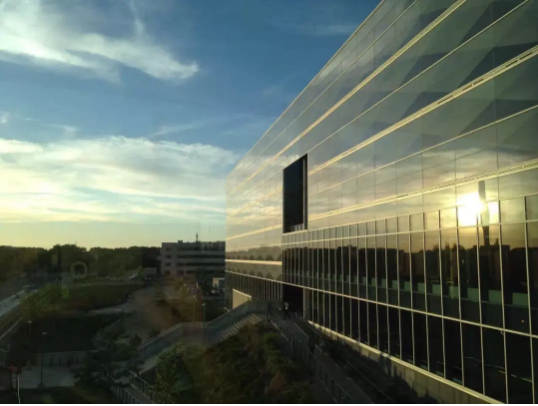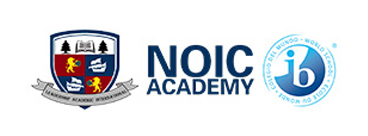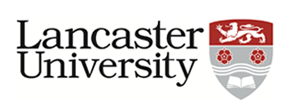臭臭“云游”加拿大
精彩不停 分享不断



臭臭“云游”加拿大
第八期
一周又过去啦 下周开始 就是加拿大的圣诞节了~~
臭臭今年暂时不能回去加拿大 但我也开始有放假的状态了 哈哈哈
提前祝福大家 圣诞快乐 跨年快乐~~
今天我们继续 滑大细分~~
数学系后 我们紧接着 当时是最著名的 工程学院!

滑铁卢大学工程学院提供15个本科工程专业,包括新兴的多学科领域的专业,
例如建筑、生物医学、环境工程,管理工程,机电一体化和纳米技术。
工程学院所有的本科专业均为带薪实习co-op专业,每年提供7600多个实习岗位。
每年从滑铁卢大学工程学院毕业的本科生和研究生博士生都是加拿大最多的。
工程学院提供37个研究生博士生专业,包括基于课程和研究的硕士以及博士学位,学校的研究生受益于强大而创新的研究环境,包括:
-2018/2019年度超过9600万科研基金;
-25位加拿大科研主席
-17位大学研究和特聘主席
-8位NSERC设计主席和工业研究主席
-57位Early Researcher Award获奖者
-十几个研究中心和研究所
-独一无二的创造者拥有知识产权的政策

现任工程学院院长
Mary Wells是滑铁卢大学工程学院现任院长(2020年7月1日--),也是工程学院1957年建院以来第9位院长 。

工程学院本科专业设置
工程学院提供15个本科工程专业,均为一年级入学专业,
请考虑感兴趣的专业:
建筑工程 Architectural Engineering
建筑 Architecture
生物医药工程 Biomedical
化学工程 Chemical
土木工程 Civil
计算机工程 Computer
电子工程 Electrical
环境工程 Environmental
地质工程 Geological
管理工程 Management
机械工程 Mechanical
机械电子工程 Mechatronics
纳米技术工程 Nanotechnology
软件工程 Software
系统设计工程 System Design
* 除建筑(Architecture)之外,学生只能申请一个工程学院的专业。
Why Engineering?
滑铁卢大学工程学院本科专业优势:
-拥有7600多优秀的本科生,是加拿大最top、规模最大的工程学院
-全部学生均在Co-op项目,受到国际认可
-学生毕业后6个月的就业率为94%
-在个人知识产权保护条例下,每年有600多个创业项目来自工程学院
-积极参与社会活动,学生社团如EngSoc, WASA等,在加拿大国内极具影响力
-与27个国家有交换生项目;每年有1400名学生在海外进行co-op实习;
-15个本科专业,均为一年级入学,涵盖广泛的工程领域,包括世界知名的建筑系
将来就读~
滑铁卢大学工程学院研究生博士生专业优势:
-工程学院在过去5年中授予工程学博士学位的人数是加拿大最多的
-广泛的校友联络,致力于为解决各类现实问题优化解决方案
-拥有世界知名的相关领域的研究专家
-工程学院有57位教授获得Early Research Award
-世界领先的硬件设备和科技,学业与实践紧密结合
-学生拥有100%个人知识产权,可与产业与商业紧密合作
-与滑铁卢地区的工业、产业长期紧密合作。滑铁卢地区是加拿大领先的科技重镇。
What is Engineering?
工程师参与了当今世界的各个方面。你可能会建造一座绿色环保并可持续发展的建筑物、改善运输系统、重组公司或设计用于危险工作的机器人。
滑大的一些学生会继续从事法律、医学或商业职业。
有些人获得研究生学位后成为教授、高级研究人员或顾问。
Ask yourself, what do I touch that’s not engineered? Engineering develops and delivers consumer goods -- builds networks of highways, air and rail travel, and the internet – mass produces antibiotics, creates artificial heart valves, builds lasers – offers wonders like imaging technology and conveniences like microwave ovens and compact disks. In short, engineering makes modern life possible.
William A. Wulf
President of the National Academy of Engineering
宝宝们 如果比较迷惑 我到底是不是需要考虑工程学 或是哪个类型适合我
下半年 有时间 可以做做在线测试 我感觉还是挺准的~~
不确定哪个专业适合你?
https://uw-engineering-quiz.herokuapp.com/
工程学院本科专业录取:
工程学院本科专业的录取主要根据:
学生的高中学业成绩;
录取信息表Admission Information Form
托福或者雅思等语言测试成绩
线上视频面试 -- 可选
录取信息表AIF
申请工程学院专业的申请者必须填写提交AIF。
啥是 AIF?? 去好好复习臭臭上期内容!
How it works
录取信息表(AIF)是滑铁卢工程学院本科专业录取过程中至关重要的部分,会影响录取和奖学金的考量。
学校对所有AIF进行审核和评分,并将这些评估结果与平均成绩结合起来,以确定每个申请者的总体录取分数,这个分数用于录取决定。
What we look for
AIF让滑大能够更好地了解学生的情况,询问有关学生的兴趣、目标、爱好、工作和你参与的其他活动的问题。
滑大不要求特定的课外活动,因为许多活动取决于个人兴趣和机会。
相反,滑大更希望看到主动性、领导力、时间管理、人际交往能力以及各种兴趣活动和积极参与的情况。
Alternative Program Choice
申请工程学院专业(除建筑外)的学生可以在AIF中列出一个备选专业。
如果滑大无法考虑学生在OUAC申请的首选工程专业,可能会考虑学生的备选专业。
请注意,选择该专业为第一选择的学生可能会被优先考虑录取。
另外,生物医药工程和软件工程都是竞争尤其激烈的专业,因此这两个专业不能作为备选专业。如果对这两个专业的其中一个感兴趣,请直接申请。
英语语言成绩要求
托福:总分90,其中口语和写作均不低于25分
雅思:总分6.5,口语和写作不低于6.5,听力和阅读不低于6.0
CAEL/CAEL online:总分70,各单项不低于60,口语和写作不低于70
PTE Academic: 总分63,口语和写作不低于65
线上视频面试-optional
How it works
工程学院在录取过程中增加了一个可选的线上视频面试部分。
过程很简单 -- 给学生一个问题,有准备时间,然后给一定的时间来回答。整个面试过程(不包括练习时间)不超过5分钟。
学生需要一台可以上网的电脑,并有可以正常运行的摄像头和麦克风。
线上面试系统允许学生进行无数次的练习,但是正式的面试问题开始之后,学生将只有一次机会 -- 这可以让滑大看到学生最直接最坦率的的回答。
What we look for
视频面试给滑大一个很好的机会与学生线上会面并直接了解学生的情况,这对滑大的录取决定很有帮助,因为申请工程学院的学生竞争力越来越强。
对待这个面试最好的方式就是做你自己,并诚实回答所有的问题。
可以把这次视频面试作为一个在你成为滑铁卢工程学院学生之后所需要进行的实习面试的一个很好的练习机会。
臭臭这里会给小欣安排面试培训,放心,不额外收费!
学业成绩
滑铁卢大学工程学院的录取将综合评估学生的学业成绩以及AIF。
所以每个工程学院的专业都没有绝对的分数线,录取分数根据每年的申请情况都会有变化。
滑大的目标是招收全面发展的、能够平衡自己的课业学习和课外活动的学生。
另外,申请建筑系并入围的学生会被要求提交个人作品集、参加面试,并完成English précis test。
非常重要:
重修课程
如果学生重修了必修课程,学生的总平均成绩会被减去5%,并且影响获得奖学金的资格。
如果学生的第一次修课成绩在70%以上,滑大会使用第一次的课程成绩而不做扣分处理。
关于各个专业 具体介绍如下 请查收哦~~
1- Architectural Engineering:
https://uwaterloo.ca/future-students/programs/architectural-engineering
Build better buildings — and a bright career in the process:
Combine engineering expertise with architectural savvy to boost the energy efficiency, durability, and sustainability of buildings. In Waterloo's newest engineering program, you'll learn how to design, renovate, and retrofit flexible buildings that adapt to different needs. And have the opportunity to combine it all with co-op.
You'll cover all the science and engineering that goes into good building design, including mechanics, structural analysis, structural design and more. In third year, you'll study at Waterloo's world-class School of Architecture, deepening your understanding of aesthetics, culture, and other elements of design.
As a result, you'll graduate speaking the language of both engineers and architects — a skill that will put you on the fast track to leadership in the building design industry.
WHAT CAN YOU DO WITH A DEGREE IN ARCHITECTURAL ENGINEERING?
Architectural Engineering students will be particularly well-suited to work in building design consulting firms, of all sizes, that house the various specialists the currently undertake building design under the same roof (i.e. interior designers, architects, structural, mechanical, and electrical engineers). However, they could also work for government public works departments, school boards and hospital authorities responsible for overseeing public building construction and maintenance, private building infrastructure owners (e.g. airport authorities), building construction firms, developers, and more.
Possible professional designation
-Professional Engineer
https://peo.on.ca/index.php?ci_id=1813&la_id=1
Learn about the future of careers in engineering.
North Americans spend more than 90% of their lives inside buildings. During this time, their productivity and quality of life are directly affected by the nature of the enclosed environment. Buildings also represent one of the largest components of any industrialized country's capital wealth. The resources used and the contaminants released by the construction and operation of buildings are now widely understood to have widespread impact on the environment and the economy. Future buildings will need to be more energy efficient, durable, sustainable, low maintenance, and flexible than existing buildings. Today there already exists an enormous portfolio of buildings that require repair, renovation, and rehabilitation. Managing, repairing, replacing, and retrofitting existing buildings will become an increasingly important activity in the future.
There is a pressing need to support this massive and changing industry with the proper technical knowledge and management skills. The Architectural Engineering curriculum is designed to address this need by providing the necessary fundamentals of mathematics and the natural sciences, as well as to provide perspectives from the fields of the social sciences and humanities.
Architectural Engineering has “Communication, Collaboration, and Design” as its mantra. A common Architectural Engineering class held in a studio setting is the core of each term and knits together issues such as design, aesthetics, culture, environment, and professionalism in the context of engineered buildings. A studio teaching experience, common in design-centric plans such as architecture and industrial design, allows for enhanced peer-learning, better collaborative work, inspiration from surroundings, rapid modelling and prototyping, while encouraging hands-on investigations and exploration. Another of the distinctive features of the curriculum is its 3A and 3B academic terms, during which students take their classes at the University of Waterloo Cambridge campus, immersed in the School of Architectu
1-Second in Canada for engineering (US News & World Report 2019)
2-Gain two years of experience in Waterloo's co-op program
3-Earn a Bachelor of Applied Science degree
2- Architecture:
https://uwaterloo.ca/future-students/programs/architecture
Create the blueprints for a great career:
In one of North America’s top schools of architecture, you’ll get a broad education that covers everything from building materials and construction techniques to cultural history, social context, green architecture, and more. Not to mention you can combine it all with co-op.
However, the core of pre-professional program is design courses, starting right in year one. You’ll get your own dedicated space in our studio where you’ll develop your ideas and skills through a series of hands-on projects.
Learn about society and culture, the principles of physics, materials and techniques of construction, human interaction with the natural and built environment, critical thought, and the diverse forms of creative expression.
It all happens in a beautiful historic building in the city of Cambridge, about 30 kilometres south of the main Waterloo campus, complete with labs, exhibition galleries, and a world-class design library.
PRESENTATION:
The presentation is an opportunity for us to learn more about each student’s interests and motivations. We want to know about the things that you are curious and passionate about –hobbies, books, social issues, etc. We also want to know what you observe in the world around you and your opinions about these things.
PORTFOLIO REQUIREMENTS:
Your portfolio is an essential component of your application to the School of Architecture. The purpose of the portfolio is to demonstrate your creativity and critical thinking, as well as technical skill. Applicants should include art, design and other creative work that illustrates those characteristics.
What to include in your portfolio
There are no specific requirements for portfolios. You can include any work you feel best demonstrates your creative interests and abilities. Possible portfolio pieces might include:
-Drawings or paintings of any subject
-Mixed media and conceptual work
-Examples of 3-dimensional works
-Craft and design work such as ceramics, jewelry, metal work or furniture
-Digital media work such as graphic design or animation
-Photography or video work
-Performance work such as dance and music, either recorded or performed live.
Portfolios consisting strictly of drafting or other technical drawings are rarely what the admissions committee is looking for. You are encouraged to also bring your sketchbooks to your interview as evidence of your thought and creative processes. It is preferable to bring in the original versions of your pieces, rather than photographic or other reproductions. If you intend to show performance work, please keep it brief to allow sufficient time for conversation during your interview.
Remember it is YOUR portfolio
Be prepared to speak to and answer questions about your creative work and other related interests. You should be able to demonstrate through discussion with the committee your personal knowledge and involvement in all pieces presented. An important aspect of the interview process is the determination of authorship of your portfolio pieces. Submission of work that is not your own will result in the dismissal of your application.
Your portfolio should be recent
Powers of observation, design sensitivity, drawing skills, and craftsmanship constantly improve and will likely be more refined in recent work. Include only what you consider
HOW DOES THE PROGRAM RELATE TO ARCHITECTURAL ENGINEERING?
If you're strong in artistic and creative abilities and have a background in math and science, Architecture is for you. You'll focus on design that applies social and cultural aspects as well as science and engineering to construction projects, ranging from accessible public space to environmental approaches to sustainable building and landscape and urban design.
Architectural Engineering is closer to Civil Engineering than it is to Architecture. Students will cover mechanics, structural analysis, structural design, and in the first two years, a lot of math. You'll learn about the science and engineering behind good building design – not just the structural aspects, but also energy efficiency, sustainable building design, and smart/green building design.
1-Second in Canada for engineering (US News & World Report 2019)
2-Gain two years of experience in Waterloo's co-op program
3-98% Co-op employment rate
3- Biomedical Engineering:
https://uwaterloo.ca/future-students/programs/biomedical-engineering
Improve the health of others (without the hefty med school bill):
Design bionic limbs. Create laser-guided surgical devices. Develop wearable tech to help athletes perform better. In Biomedical Engineering, you’ll use engineering know-how to develop better ways to diagnose illnesses, treat health problems, and enhance health.
You’ll study biomechanics, physics, chemistry, and design. With that broad knowledge, you’ll be able to collaborate with all kinds of different experts: biologists, medical practitioners, policy makers, and engineers, to name a few. You’ll also learn to model and design complex biomedical systems—and you’ll get plenty of hands-on experience through two years of paid co-op work terms, plus a fourth-year design project.
By the time you graduate, you’ll be ready to create tomorrow’s life-saving and life-enhancing innovations.
Life sciences, meet engineering:
Advances in biomedical science rely on contributions from a variety of disciplines. As part of the Department of Systems Design Engineering, the Biomedical Engineering program is highly interdisciplinary, with a focus on design. Combining fields like biochemistry, cellular physiology, anatomy, molecular biology, and physiology with engineering principles, the program centres around the creation and development of biomedical systems and devices.
Biomedical Engineering instructors come from a range of engineering fields -
Systems Design(https://uwaterloo.ca/systems-design-engineering/),
Electrical and Computer(https://uwaterloo.ca/electrical-computer-engineering/),
Chemical(https://uwaterloo.ca/chemical-engineering/) and
Mechanical and Mechatronics(https://uwaterloo.ca/mechanical-mechatronics-engineering/)
- as well as other areas across campus, including
Biology(https://uwaterloo.ca/biology/),
and the School of Anatomy(https://uwaterloo.ca/kinesiology/resources-services/school-anatomy).
Students are trained as generalists, while gaining expertise in the program's 3 theme areas:
-Biomedical signals
-Biomechanics
-Biomedical devices
4- Chemical Engineering:
https://uwaterloo.ca/future-students/programs/chemical-engineering
Put your creativity and problem solving to the test:
Learn to engineer the products we use every day. Turn fuel into energy, waste into resources, and raw material into finished products in one of the largest chemical engineering departments in Canada, and one of the top 100 in the world.
You’ll develop expertise in chemistry and materials science — plus you’ll learn the systems analysis skills to design, implement, and manage processes from start to finish.
You’ll put that knowledge to work during your six co-op terms: creating an impressive résumé, exploring different career areas, and earning money to help pay for your education.
Hone your lab skills:
Learn how to conduct investigations in the areas of fluid mechanics, bioseparations, and electrochemistry using our hands-on labs.
1-Second in Canada for engineering (US News & World Report 2019)
2-Gain two years of experience in Waterloo's co-op program
3-Students earn $13,300 on average per co-op term
5- Civil Engineering:
https://uwaterloo.ca/future-students/programs/civil-engineering
Make the world your sandbox (hardhat included):
Bring on the bulldozers! In one of Canada’s largest (and the world's top 100) civil engineering programs, you’ll learn to design and maintain the massive infrastructure we all depend on: bridges, highways, airports, tunnels, dams, pollution-control facilities, and more.
This is a degree with lots of flexibility. Once you’ve completed your foundational courses, you can choose from a wide variety of technical electives in structural, transportation, geotechnical, and water/environmental engineering.
You’ll apply your knowledge during your six co-op work terms. This is your chance to test drive different career options: work for major construction and engineering companies, get experience with local or provincial governments, or spend a term abroad.
You’ll graduate ready to create structures — in Canada or overseas — that stand the test of time.
The Civil engineering program at Waterloo is both challenging and fulfilling, with a great deal of flexibility: students get to customize their degree with a large number of technical electives in structural, transportation, geotechnical, and water/environmental engineering. Of course, the co-op advantage is here, too: students can work in a number of different organization to determine what 'flavour' of civil engineering employment they like best, all while learning critical on-the-job skills.
The complex problems and needs of current and future societies have created challenges for Engineering unparalleled in our history. To interpret and satisfy these needs, civil engineers currently direct the spending of more than one tenth of Canada's gross national product – more than any other professional group. The civil engineer must deal with the human impact of engineering – the social, moral, and legal issues – to a far greater degree than ever before.
Historically, civil engineering is the oldest branch of engineering and dates back at least 5,000 years to the profession of "master builder" involving pyramids, temples, and irrigation projects. Civil engineering has become an extremely diverse field with opportunities for graduates in many areas of application. The use of electronic data collection methods and the application of computers has revolutionized the practice of civil engineering. Consequently, our curriculum is being constantly reviewed in order to produce engineering graduates who can use advanced aids to solve complex problems.
The Civil Engineering curriculum is designed to provide the necessary fundamentals of mathematics and the natural sciences as well as to provide perspectives from the fields of the social sciences and humanities.
The Department of Civil and Environmental Engineering (CEE) at the University of Waterloo, being one of the largest in Canada, is able to offer elective courses in each of the following areas:
-Structural Engineering
Deals with the design and construction of all types of structures including buildings and bridges. Emphasis is placed on mechanics and the behaviour of materials.
-Construction Engineering and Management
Intended for students interested in project management, construction materials, construction engineering, and building engineering.
-Water and Waste Management Engineering
Addresses water and waste water treatment, surface and ground water pollution and control, solid and hazardous waste management, contaminant transport and behaviour in the environment. Support areas involving aquatic chemistry, computer modelling, simulation, and laboratory experimentation as examples are also stressed.
-Transportation Engineering
Deals with the planning, design, construction, traffic operation, and evaluation of streets, highways, airports, and transit systems.
-Geotechnical Engineering
Familiarizes students with the engineering properties of soils, the fundamentals of soil mechanics, and the application of geotechnical data and fundamentals to the design of foundation elements, earth-retaining structures, excavations, earth embankments, and highway pavements.
-Engineering Mechanics
For students with a strong interest in a rigorous study of mechanics, applied mathematics, and related fields. Leads to an understanding of advanced analysis and serving as a preparation for graduate study in structural engineering, hydraulics, mechanics of solids and fluids, or properties of materials.
-Water Resources Engineering
Deals with the planning, management, design, and operation of water supply and distribution systems, flood control and flood hazard mapping, hydrologic and hydraulic aspects of environmental issues, and application of remotely-sensed data to hydrologic and environmental problems.
-Materials
Courses in this area are intended to provide students interested in structural engineering, mechanics, or properties of materials with a background in materials science.
Additional Areas of Study:
Alternatively, the student can choose a more general pattern of study involving courses from several topic areas, or a program outside the traditional civil engineering field. For instance, with the approval of the associate chair for undergraduate studies, the student may augment the Civil Engineering course curriculum with elective courses from public administration, planning, management science, business administration, bioengineering, environmental health, and others.
To this end, the Civil Engineering curriculum has been designed to allow the maximum possible flexibility while still meeting the requirements for the professional degree. The Civil Engineering curriculum enables the students to conduct engineering analysis and design, to perform risk and life cycle analysis, and asset management, and to evaluate the impact of engineering work on the environment.
The profession of civil engineering is involved with the creation, operation, and maintenance of structures associated with water resources, transportation, power generation, and a wide range of industrial, commercial and institutional buildings and complexes including whole urban structures. The activities include investigation, planning design, construction, and evaluation.
Vocationally, a civil engineer may focus in such areas as biomechanics, solid mechanics, fracture mechanics, elasticity, building structures, bridges, hydrology, hydraulics, sanitation (public health), industrial wastes, water resource structures, irrigation and drainage, inland waterways, harbours, aerospace, highways (roads and streets), railroads, pipelines, geology, meteorology, soil mechanics, foundations, tunnelling (rock mechanics), surveying and cartography, urban and regional planning, and overall project planning. A civil engineering education may also be combined wi
WHAT CAN YOU DO WITH A DEGREE IN CIVIL ENGINEERING?
Waterloo Civil Engineering graduates often pursue careers where they oversee projects focusing on planning, design, and construction of the large-scale infrastructures around us.
Recent graduates:
-Tunnel Engineer – GHD
-Structural Engineer – AECOM
-Engineer – MMM Group
-Structural Design Engineer – Stephenson Engineering
-Field Engineer – PCL Construction Management
-Civil Engineer – Clifton Associates
-Project Manager – JP2G
Possible professional designation
Professional Engineer
https://peo.on.ca/index.php?ci_id=1813&la_id=1
1-Second in Canada for engineering (US News & World Report 2019)
2-Gain two years of experience in Waterloo's co-op program
3-Students earn $13,300 on average per co-op term
6- Computer Engineering
https://uwaterloo.ca/future-students/programs/computer-engineering
Why choose? Develop software savvy and hardware know-how.
Want to design a brain stimulator to combat symptoms of Parkinson's disease? Develop software to protect companies from cyber attacks? Create the next groundbreaking gaming platform? Learn at one of the top 50 universities in the world for Computer Engineering? (Shanghai World University Rankings 2020)
Between labs and lectures, you'll gain experience with all aspects of computers, from chips and wiring to software, networks, and communications. Meanwhile, your co-op terms will give you 2 years of paid work experience.
You’ll graduate ready for a career as a software developer, hardware engineer, IT specialist, systems designer, and more.
The first three academic terms: Each cohort is a blend of electrical and computer engineering students – these students share all courses in the first three academic terms.
The next three academic terms: two shared core courses, two program-specific courses, and one elective of each student's choice.
The last two years: all electrical and computer engineering students merge again to take their chosen technical electives in each student's own personal areas of focus.
There are six co-operative work terms and the normal rules of Co-operative Education apply, as further described in the Engineering Co-op section. With permission, the requirement for co-operative work terms may be reduced by one four-month work term.
1-Second in Canada for engineering (US News & World Report 2019)
2-Gain two years of experience in Waterloo's co-op program
3-Students earn $13,300 on average per co-op term
7- Electrical Engineering
https://uwaterloo.ca/future-students/programs/electrical-engineering
Set yourself up for an electrifying future:
Behind just about every advance in information, power, and energy, you’ll find an electrical engineer. Join the ranks of those innovators with a degree from Waterloo, whose electrical engineering program is ranked in the top 75 internationally (Shanghai World University Rankings 2020).
You’ll study the fundamentals of electromagnetism, circuits, algorithms, and instrumentation. You'll also gain hands-on experience starting right in first year, thanks to paid co-op work terms and some of the best electrical engineering student labs in North America.
When you graduate, you’ll have hundreds of career paths open to you: from designing power stations and aircraft control systems to pioneering the future of microprocessors and telecommunications systems.
WHAT CAN YOU DO WITH A DEGREE IN ELECTRICAL ENGINEERING?
Waterloo Electrical Engineering graduates often pursue careers in software development, manufacturing, telecommunications, aerospace, and more. They often work for engineering firms, technology companies, and manufacturing companies.
Recent graduates:
-Hardware Engineer – Intel
-Electrical Designer – Mulvey & Banani International
-Business Technology Analyst – Deloitte
-Programmer – Kubra Data Transfer
-Software Engineer – Dropbox
-Application Specialist – Ceridian
-Engineering Product Management – IBM Canada
Possible professional designation
Professional Engineer
Learn about the future of careers in engineering.
1-Second in Canada for engineering (US News & World Report 2019)
2-Gain two years of experience in Waterloo's co-op program
3-Students earn $13,300 on average per co-op term
8- Environmental Engineering
https://uwaterloo.ca/future-students/programs/environmental-engineering
Save the planet. Get an engineering degree:
Clean up contaminated soil. Prevent E. coli outbreaks. Design smarter ways to treat and manage water.
Canada’s largest Environmental Engineering program gives you the technical rigour of an engineering degree combined with scientific know-how and environmental insights. As it's also one of the top 100 environmental engineering programs in the world (Shanghai World University Rankings 2020), you’ll take courses in engineering, chemistry, biology, geology, and more, drawing on that broad base of knowledge to tackle water, soil, and air pollution.
Meanwhile, you’ll gain two years of paid experience through your co-op work terms, allowing you to earn money to help pay for your education and discover the career areas that fit you best.
You’ll graduate ready to clean up the world’s pollution — and to prevent future environmental problems.
WHAT CAREERS CAN YOU PURSUE WITH AN ENVIRONMENTAL ENGINEERING DEGREE?
Graduates often pursue careers that can positively impact the environment around us such as consulting, operations, and more. They typically work in government, for cities, and for environmental consulting firms.
Recent graduates
Environmental Consultant – Pottinger Gaherty Environmental Consultants
Water Resources Specialist – Golder Associates
Environmental Specialist – Public Works & Government Services Canada
Project Coordinator – David Schaeffer Engineering
Geomatics Analyst – Monteith & Sutherland Geospatial Solutions
Operations Specialist – CLEAResult
Water Resource Engineer in Training – Aecom
Possible professional designation
Professional Engineer
1-Second in Canada for engineering (US News & World Report 2019)
2-Gain two years of experience in Waterloo's co-op program
3-Students earn $13,300 on average per co-op term
9- Geological Engineering
https://uwaterloo.ca/future-students/programs/geological-engineering
Put your future on solid ground — and help the world do the same:
Use your knowledge of soil and rock behaviour to solve complex problems. Ensure the safety of dams and pipelines, assess risks for landslides and earthquakes, remove hazardous waste from groundwater, and more.
Waterloo’s program is one of only two in Ontario. You’ll take Civil Engineering classes, where you’ll learn design and problem-solving skills. You’ll also take Earth Sciences classes, where you’ll acquire a solid background in geosciences. Meanwhile, through co-op, you'll gain two full years of related work experience.
When you graduate, your degree can take you around the world — working in oil and gas, mineral exploration, hazard waste removal, groundwater management, and more.
Areas of Interest:
Starting in third year, Geological Engineering students begin to focus in one of two areas: Geomechanics or Hydrogeology.
GEOMECHANICS:
This is for students interested in a professional career in areas concerned with the mechanical behaviour of soils and rocks, and construction on, in, or with theses materials.
Potential careers include:
-Rock mechanics in mining, civil, and petroleum industries
-Geotechnical aspects of dams, and impoundment design
-Foundation exploration and design for bridges, buildings, and roads
-Aggregate resource exploration and development
-Slope stability in mines and along transportation routes
-Design and construction of tunnels, shafts, trenches, and other underground structures
HYDROGEOLOGY:
This is for students interested in a professional career related to water supply and quality, fluid flow through soil and rocks, and environmental protection and monitoring related to these areas.
Potential careers include:
-Groundwater exploration, supply and recharge
-Groundwater remediation and contaminated site restoration
-Characterizations of surface and subsurface water quality and quantity
-Petroleum resource exploration and development
-Geothermal resource exploration and development
-Landfill integrity and interaction with rainfall
COMBINE GEOLOGY AND ENGINEERING FOR A REWARDING CAREER
For Waterloo graduates, the world is their office. They commonly pursue careers in engineering consulting, mining, and public health, while merging both tech and the outdoors. They often work for engineering firms, government departments, and more.
Recent graduates:
-Geological Engineer – AMEC
-Geotechnical Design – Shell Canada
-Rock Mechanics Engineer – Glencore, Kidd Creek Operations
-Geological Engineer – BGC Engineering
-Water Specialist – Ontario Fruit and Vegetable Growers’ Association
-Geotechnical Engineer – Pretium Resources
-Junior Program Engineer – Environment & Climate Change Canada
Possible professional designation:
Professional Engineer, Professional Geologist
1-Second in Canada for engineering (US News & World Report 2019)
2-Gain two years of experience in Waterloo's co-op program
3-Students earn $13,300 on average per co-op term
10- Management Engineering
https://uwaterloo.ca/future-students/programs/management-engineering
Smooth moves: get a degree in making processes flow better:
Cut waiting times for surgery. Streamline supply chains. Fine-tune airline routes. In Canada’s first and only Management Engineering program, you’ll learn to analyze how organizations operate and apply engineering skills to increase their efficiency.
Over the course of your degree, you’ll develop expertise in data analytics, information systems, operations and supply chain management, and organizational behaviour. You'll also have the opportunity to gain paid work experience through co-op.
By graduation, you’ll have the know-how to design and manage complex systems, optimizing the flow of energy, materials, people, and information. And you’ll find no shortage of companies looking for your skills: in software, finance, supply chain management, health care, manufacturing, and more.
Management Engineering provides undergraduate students with an engineering education needed to understand, design, implement, and manage complex management systems upon which organizations depend. Management Engineering undergraduates obtain a degree which combines, as an integrated whole, technical and managerial knowledge along with opportunities to develop their problem-solving abilities, communication and interpersonal skills, project management experience, teamwork, and leadership skills.
The Management Engineering plan is administered by the Department of Management Sciences in the Faculty of Engineering. The Department of Management Sciences also offers the Management Sciences Option to students in other Engineering plans, as described elsewhere in this Calendar.
The Management Engineering curriculum at Waterloo provides a solid foundation in management, engineering, science, and mathematics. On this foundation, the curriculum also has a number of courses focused on one of three theme areas:
-Operations research and supply chain management: Operations research deals with quantitative models of complex operations and uses these models to support decision-making in any sector of industry or public services. Supply chain management is the process of planning, implementing and managing the flow of goods, services, and related information from the point of origin to the point of consumption.
-Information technologies: The information technologies theme focuses on how technology is designed and managed to support effective decision-making. Topics deal with technical applications in software design and development, data mining and telecommunication, and the organizational and social issues associated with the use of information technologies.
-Management of technology: The management of technology theme builds on the foundation of management topics in accounting, finance, economics, organizational behaviour, and organizational design. Courses in this theme deal with operational and organizational issues related to managing innovation and technological change.
The capstone design project is intended to provide students with the opportunity to engage in a significant design experience based on engineering and management knowledge and skills gained in previous courses and on co-operative work terms. The project will reinforce the concepts of teamwork and project management.
http://ugradcalendar.uwaterloo.ca/page/ENG-Management-Engineering
Employment Opportunities:
Employment opportunities for management engineers exist in business, industry, non-profit organizations, government, universities, and wherever institutions wish to improve their effectiveness and efficiency based on engineering analysis and principles of scientific management. Graduates are uniquely qualified to work on interdisciplinary teams that require both engineering and management expertise, to manage technical functions in almost any enterprise, or to undertake the management of broader functions in a high-technology enterprise. Management engineers work and consult in every industry, including manufacturing, communications, transportation, energy, retail and distribution, banks and insurance companies, hospitals and healthcare organizations, entertainment and travel firms.
11- Mechanical Engineering
http://ugradcalendar.uwaterloo.ca/page/ENG-Nanotechnology-Engineering
Put your career in gear:
If you love things that move, this is your program. At Waterloo, you’ll develop the skills you need to design everything from switches to spacecraft.
You’ll get a broad foundation in all aspects of mechanical design: mechanics, power, control, and manufacturing. You’ll also learn to lead large, multidisciplinary teams, solve problems, come up with high-impact innovations, and have the chance to apply it all to real work experiences in co-op.
Where you use those skills is up to you. Mechanical engineers work in all kinds of fields, constantly looking for ways to make machinery faster, lighter, cleaner, and more reliable.
And with two years of career-relevant experience on your résumé by the time you graduate, you’ll definitely impress potential employers.
Areas of focus in mechanical engineering:
-FLUID MECHANICS/ENVIRONMENTAL FLUID MECHANICS
The courses in this area of specialization deal with a broad range of applications of the principles of thermodynamics and fluid mechanics, with emphasis on topics of industrial significance for example, aerodynamics, internal flows with heat and mass transfer, turbomachinery, and flows in the natural environment such as plumes in air and effluents in water. Many courses in fluid mechanics and thermal engineering are closely linked.
-MACHINE DESIGN AND SOLID MECHANICS
The courses offered in this area of specialization range from those which provide the mathematical and physical basis of the subject matter through to those which are largely applied in nature. Subjects treated are: mechanics (including vibrations); theories of elasticity, plasticity and fracture; machine design and design optimization.
-MATERIALS ENGINEERING AND PROCESSING
This area of specialization consists of a comprehensive series of courses in metallurgy, including heat treatment, casting, welding, cold and hot forming. Nonmetallic materials, including plastics and ceramics, and composites such as fiberglass and sandwich structures are also considered
-AUTOMATION AND CONTROL
The courses in this area of specialization are designed to provide the student with an understanding of the principles and control of production processes, the application of computers to the manufacturing activity and the organization of production. Topics treated are: automation, metal forming, numerical control of machine tools, applications of fluid power and industrial noise control. These topics are also a prominent part of the mechanical portion of the Mechatronics Option.
-THERMAL ENGINEERING
The courses in this area of specialization develop and apply the principles of thermodynamics, heat transfer (conduction, convection, radiation), and fluid mechanics to such topics as combustion; heating, ventilation, and air conditioning of buildings; and energy conversion. Many courses in fluid mechanics and thermal engineering are closely linked.
Specializations and Options:
Mechanical Engineering students typically specialize in one of five areas: Fluid Mechanics, Machine Design and Solid Mechanics, Materials Engineering and Processing, Automation and Control, or Thermal Engineering.
MME Department policy permits students to take up to 2 of their 7 fourth-year technical electives from other departments in the Faculty of Engineering, provided that the courses are at an equivalent academic level.
1-Second in Canada for engineering (US News & World Report 2019)
2-Gain two years of experience in Waterloo's co-op program
3-Students earn $13,300 on average per co-op term
12- Mechatronics Engineering
https://uwaterloo.ca/future-students/programs/mechatronics-engineering
Build the next generation of robots (and cars and wearable tech and…):
From the ATM down the street to the drone that will one day deliver your pizza, computer-controlled electromechanical systems drive all kinds of technology. Learn to design those systems in Waterloo’s Mechatronics Engineering program — the first of its kind in Canada and one of the top 100 in the world (Shanghai World University Rankings 2020).
You’ll develop expertise in mechanical engineering, electronics, control engineering, and computer science, pulling together know-how from these different fields to develop sophisticated machines.
During your co-op terms, you’ll have the chance to try out different career paths, earn money to pay for your education, and build a résumé guaranteed to impress potential employers.
Mechatronics engineering undergraduate program :
https://uwaterloo.ca/mechanical-mechatronics-engineering/future-undergraduate-students/mechatronics-engineering
The mechatronics program at the University of Waterloo is administered by the department of mechanical and mechatronics engineering. The mechatronics program differs very significantly from the mechanical engineering program in the courses that students take.
Half of the second and third year courses in mechatronics are provided by the systems design engineering and electrical and computer engineering departments. This makes the mechatronics program ideal for students who prefer a broad, interdisciplinary engineering education that is highly integrated and focussed.
Today, the University of Waterloo's mechatronics program is unmatched in terms of content and integration. The program admission target intake is around 220 students per year. The program had 224 students admitted in fall 2018. Admission to the program is highly competitive.
Students are required to participate in the work/study (co-op) program, which entails completing five work terms in industry. The degree, a Bachelor of Applied Science (BASc) in Mechatronics Engineering, is accredited by the Canadian Engineering Accreditation Board (CEAB).
Mechatronics engineering is an integrated approach to the design of computer controlled electro-mechanical systems. Mechatronic applications are pervasive in our everyday lives, so much so that we often take them for granted. Familiar examples of mechatronic systems include automotive anti-lock braking systems (ABS), SLR cameras, and aerospace "fly-by-wire" systems. These mechatronic designs are much more than simply the addition of a microcontroller to an existing mechanical system – their complete and properly integrated redesign is what makes them successful. An integrated design philosophy has been incorporated into the development of this plan.
In order to successfully combine mechanical design, computers, software, and electronics with an integrated design approach, the mechatronics engineer requires an understanding of a breadth of topics. The tools that make up the mechatronics engineer’s repertoire are drawn from many departments across the Faculty of Engineering: Mechanical, Electrical and Computer, and Systems Design Engineering. The result is a multidisciplinary plan, which provides students with a unique set of skills.
The curriculum is a rich blend of courses prepared and delivered specifically for Mechatronics Engineering students, designated with the MTE label, and courses selected from other engineering disciplines: Mechanical Engineering (ME), Electrical and Computer Engineering (ECE), and Systems Design Engineering (SYDE). Mechatronics Engineering students thus benefit from a breadth of expertise.
http://ugradcalendar.uwaterloo.ca/page/ENG-Mechatronics-Engineering
1-Second in Canada for engineering (US News & World Report 2019)
2-Gain two years of experience in Waterloo's co-op program
3-Students earn $13,300 on average per co-op term
13- Nanotechnology Engineering
https://uwaterloo.ca/future-students/programs/nanotechnology-engineering
Design solutions measured in billionths of a metre:
Nanotechnology is revolutionizing everything from smartphones to cancer treatment. Put yourself on the forefront of that revolution at Waterloo.
In Canada’s only undergraduate nanotechnology engineering program, you’ll use principles from biology, chemistry, electronics, and quantum physics to create materials and machines far too small to see with the naked eye.
You'll gain extensive experience in your lab courses and through co-op positions at places like Mercedes-Benz, Harvard Medical School, and MIT. In your upper years, you’ll spend eighth months at a time on work terms, so you can really dig deep into a project — and graduate with a seriously impressive résumé.
Nanotechnology careers:
Click on the links below to see some of the jobs held by NE graduates.
https://uwaterloo.ca/nanotechnology/career-prospects/industry
-SOFTWARE & IT:
--Lead Product Manager, Beepi, San Francisco, CA
--Manager, Data Science, Facebook, San Francisco
--Software Performance Engineer, NexJ Systems
--Virtual Systems Engineer, Cisco
--Agile Engineer, TribalScale
--Software Developer, Mercatus Technologies Inc.
-SEMICONDUCTORS & ELECTRONICS:
--Optical Display Engineer, Apple Inc
--R&D - Thermal Treatment, STMicroelectronics, France
--Emerging Tech Lead, Nanoleaf
--Process Engineering EIT (thin films and nanocoatings), Intlvac Thin Film
--Applications Engineer, Angstrom Engineering
--Post-Silicon Design Engineer, AMD
--Engineering Manager, RMF Design and Manufacturing Inc.
--Semiconductor Process & Material Engineer, Intel Corporation
--Engineering Program Manager, Apple
-HEALTHCARE & PHARMACEUTICALS:
--Engineering Manager, P.Eng., Philips Healthcare
--Senior Systems Developer, Synaptive Medical
--Project Leader, Apotex Inc
--Biomedical Engineering Associate, Kallo Inc.
--MEMS Engineer, Xagenic Inc.
--Research Scientist, Alere, Inc. (biosensors)
--Quality Control, Biostatistics, Sanofi Pasteur
--Biomedical Engineer (EIT), Ontario Institute for Cancer Research
--Hardware Engineer, Applied Brain Research
-BUSINESS & FINANCIAL TECHNOLOGY (FINTECH):
--Analyst - Capital Markets Product Operations, BMO Capital Markets
--Manager, Strategic Projects, Personal Sales Force Effectiveness, BMO Financial Group
--Associate Portfolio Manager, Lawrence Park Capital Partners
--Financial Center Technology Trainer, Sun Life Financial Analyst, Goldman Sachs
--Lead Associate, Novantas
--Risk Analyst, EIT, Sigma Risk Management
-CONSULTING:
--Senior Consultant | Technology Strategy, Deloitte Consulting
--Process Engineer, Advent Consulting Canada
--Business Technology Analyst, Senior Consultant, Deloitte, New York
--Technology Consultant, Interglobe Services Inc, CrystallizeIt
--Business Technologist Analyst Consultant,
1-Second in Canada for engineering (US News & World Report 2019)
2-Gain two years of experience in Waterloo's co-op program
3-Students earn $13,300 on average per co-op term
14- Software Engineering
https://uwaterloo.ca/future-students/programs/software-engineering
Because today, even your fridge is full of software:
Whether you want to create a VR training program for surgeons, the next "swipe right" dating app, or an autonomous car, software engineers have endless career options in today’s tech-enabled world.
At Waterloo, you won’t just write code. You’ll also analyze software architecture, apply algorithms, understand digital hardware systems, and design human/ computer interfaces. Plus, you’ll learn how to work in teams and manage projects, all while being taught by one of the best universities on the planet for software engineering (Shanghai World University Rankings 2020).
Then, during your co-op, you’ll put those skills to work at leading companies like Snapchat, Facebook, or hot new startups. When you graduate, you’ll be ready to create reliable, affordable, and faster software for all kinds of different purposes.
Demand for software engineers:
Over the last few decades, information technology has grown dramatically, with significant impact to both the global economy and everyday life. Computing power has increased rapidly while the costs of hardware and communications have dropped, making it increasingly more economical to implement systems in software rather than hardware. Mechanical devices in automobiles, airplanes, and power plants are being replaced by software components because software is more adaptable, can provide more functionality, and can be upgraded more easily to accommodate future needs. Software is used in medical devices, transportation systems, and financial systems to automate repetitive but critical tasks. Scientists and business researchers use software to sift through data warehouses and to identify pertinent facts and trends. Banking, insurance, telecommunications, and other service industries use software to automate and personalize the services they offer to their customers. As software applications have grown more complex, there has been a surge in the demand for software engineers who have the knowledge and expertise to develop high-quality software systems.
Software Engineering at Waterloo:
Waterloo's Software Engineering degree program builds on the University's strengths in Computer Science and Engineering. Your studies will not only include a solid foundation in mathematics, science, engineering, and computer science, but will also cover fundamental concepts of the software development process, project management, and proper technical documentation. You'll apply these techniques to create and maintain complex software systems, in areas such as telecommunications, computer graphics, scientific computing, and financial systems. Because software engineering projects tend to involve large numbers of people, much of your work will involve teamwork. This experience will help you to develop strong communication, interpersonal, and reasoning skills.
1-Second in Canada for engineering (US News & World Report 2019)
2-Gain two years of experience in Waterloo's co-op program
3-Students earn $13,300 on average per co-op term
15- Systems Design Engineering
https://uwaterloo.ca/future-students/programs/systems-design-engineering
Get creative. And still get an engineering degree:
Cross boundaries. Connect the dots. Look at the bigger picture. Systems Design is designed for people who want the rigour of an engineering degree plus the flexibility to explore topics outside traditional engineering disciplines.
You’ll examine the people, materials, tools, software, and other factors involved in any engineering problem. You’ll learn to look at the system as a whole and assess how one change will affect another element, using a variety of modelling, analysis, and design methods.
Our project-based approach gives you lots of opportunity to apply your learning to real problems. Plus you’ll get two full years of work experience through our co-op program.
Once you graduate, your options are wide open: our grads go on to engineering consulting, project management, graduate school, medical school, startups, and more.
The department administers two Bachelor of Applied Science (BASc) degree programs -
1.systems design engineering and
2.biomedical engineering.
Design thinking:
Beginning in first year, systems design students engage in design workshops that involve devising solutions to problems using specific approaches. Working in teams, students learn to implement their solutions by creating, testing, and evaluating prototypes. Teams are generally dynamic and effective, with all members contributing equally for the better of the whole.
In first year, students are assigned to teams and given problems such as designing physical systems that use wasted energy to help with everyday tasks. Possible solutions could include building a bedside lampshade cover to keep you warm at night, or a solar-powered personal anxiety detector.
In fourth year, students choose their partners, supervisor, and the specific problems that they will address. They then spend a full year designing and building their solutions, developing ideas such as prosthetic forearms and stock market prediction programs. Some students have even converted their fourth-year projects into start-up companies, launched after (and sometimes before) graduation!
Options available to systems design students:
-Artificial Intelligence
-Biomechanics
-Entrepreneurship
-Environmental Engineering
-International Studies in Engineering
-Life Sciences
-Management Sciences
-Mechatronics
-Physical Sciences
-Software Engineering
-Statistics
The Engineering Profession:
Systems Design Engineering is a unique engineering discipline, which is formally accredited by the Canadian Engineering Accreditation Board (CEAB). With four years of work experience beyond graduation (Bachelor of Applied Science - BASc), the systems design engineer may apply for registration as a professional engineer.
Each province within Canada has its own professional engineering association. The CEAB is a national organization that has representation from all of the provincial professional engineering associations. The CEAB determines what types of courses must be contained in a university engineering curriculum in order for the program to meet the standards of Canadian engineering. The Systems Design Engineering plan satisfies the strict standards of the CEAB and is therefore acknowledged as a fully qualified engineering plan. In fact, the Department of Systems Design Engineering at the University of Waterloo is the only department of its kind in all of Canada and one of few in North America.
Systems Design Engineering is specifically oriented towards developing graduates who can solve problems lying at the interface of technology and the human environment. Therefore, if you are technically oriented and have a strong parallel interest in social and human problems, systems design engineering may be the right plan for you.
The Department of Systems Design Engineering also offers programs leading to Master of Engineering (MEng), Master of Applied Science (MASc), and Doctor of Philosophy (PhD) degrees and many Systems Design Engineering students have gone on to complete graduate degrees. The faculty members of the department are involved in a wide spectrum of research activities such as conflict analysis, pattern recognition, ergonomics, computer engineering, and mechatronics. Students who also wish to do research in one of these areas may start at the undergraduate level by entering the Accelerated Master's Programs in Engineering at the end of their 3B academic term.
In this way, they will be able to complete a Master's degree within one year after receiving their Bachelor's degree.
The Systems Design Engineering curriculum is quite challenging. It is not easy to acquire the tools for resolving the problems of complex systems. Moreover, these tools are becoming more and more sophisticated. On average, students in Systems Design Engineering are expected to work at least 50 hours per week as they increase awareness of the theories of human communication and electro-mechanical systems, make progress in the areas of systems theory, human systems engineering, and socio-economic systems, and absorb the implications of the tremendous growth of electronic computing systems.
Employment Opportunities:
Graduates of systems design engineering will find employment opportunities in a number of diverse fields. To some extent, the technical elective area chosen by the student in the third and fourth year determines more specifically what the student does upon graduation. Some particular types of careers which systems design engineers may be involved with include:
-analysis and optimization of engineering systems
-simulation and advanced computer applications
-process control and instrumentation
-operations research
-development of alternative energy sources
-design of human-machine interfaces
-control systems design
-socio-economic systems design
-data analysis and pattern recognition
-occupational health and safety
-product design, planning, and management
-ergonomics
-resources management
-research and development
These types of professional activities may fall within the domain of one or more engineering disciplines such as chemical, civil (e.g., structural, water resource, and transportation systems), electrical (e.g., circuit design and microprocessor applications), mechanical (e.g., energy conversion and design of machines), environmental (e.g., environmental impact assessment and planning), industrial, and human factors engineering.
1-Second in Canada for engineering (US News & World Report 2019)
2-Gain two years of experience in Waterloo's co-op program
3-Students earn $13,300 on average per co-op term
















